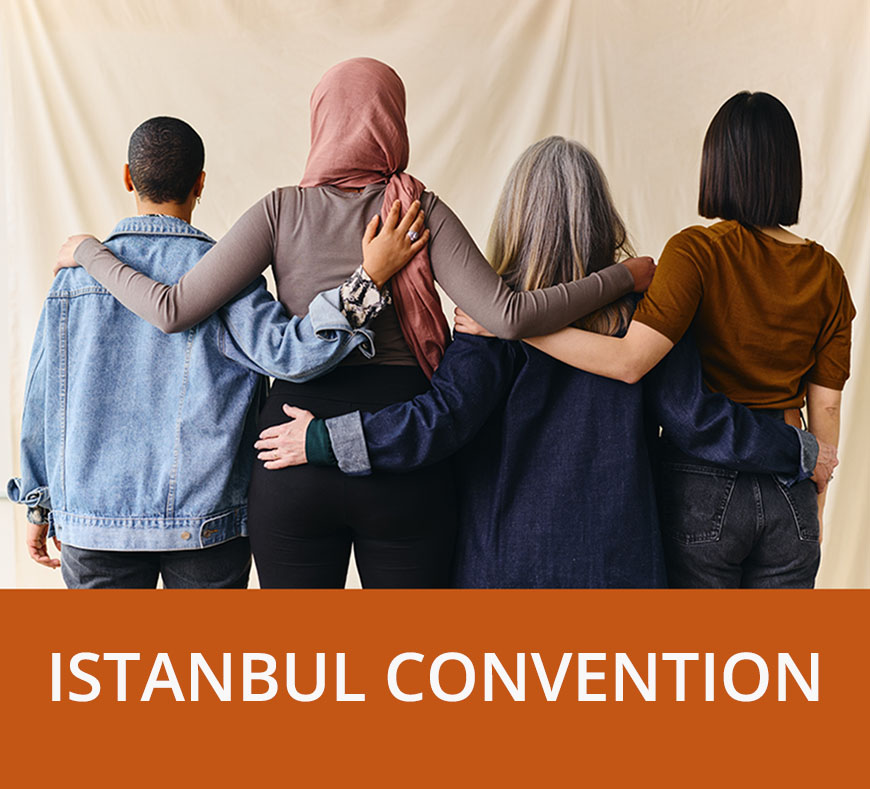About Monitoring
The Istanbul Convention monitoring mechanism: a two-pillar system
The aim of the monitoring mechanism of the Istanbul Convention is to assess and improve the implementation of the Convention by Parties. It consists of two distinct, but interacting, bodies:
- an independent expert body, the Group of Experts on Action against Violence against Women and Domestic Violence (GREVIO), which was initially composed of 10 members and is now subsequently enlarged to 15 members following the 25th ratification;
- a political body, the Committee of the Parties, which is composed of representatives of the Parties to the Istanbul Convention.
The task of GREVIO is to monitor the implementation of the Convention by the Parties. GREVIO may also adopt, where appropriate, general recommendations on themes and concepts of the Convention. The Committee of the Parties follows up on GREVIO reports and conclusions and adopts recommendations to the Parties concerned. It is also responsible for the election of GREVIO members.
Monitoring procedures
The Istanbul Convention provides for two types of monitoring procedures: a country-by-country evaluation procedure and a special inquiry procedure.
The country-by-country evaluation procedure begins with a first assessment, to be followed by evaluation rounds. In this context, GREVIO considers information submitted by the Parties in response to its questionnaires or any other requests for information, taking into account information received from relevant Council of Europe bodies, institutions established under other international instruments (such as the United Nations Committee on the Elimination of Discrimination Against Women), non-governmental organisations and national human rights institutions. If the information gained is insufficient, GREVIO may organise country visits. Following a phase of exchanges and consultations with the competent authorities, GREVIO adopts its final reports and conclusions, and sends them to the Parties concerned. The reports and conclusions of GREVIO are made public as from their adoption, together with any comments by the Parties concerned.
GREVIO's reports, upon their adoption, are transmitted to the the Committee of the Parties which adopts specific recommendations concerning the measures to be taken to implement the conclusions of GREVIO.
A special inquiry procedure may be initiated by GREVIO when there is reliable information indicating that action is required to prevent a serious, massive or persistent pattern of any acts of violence covered by the Convention. In such a case, GREVIO may request the urgent submission of a special report by the Party concerned. Taking into account the relevant information at its disposal, GREVIO may designate one or more of its members to conduct an inquiry and to report back. Where warranted and with the consent of the Party, the inquiry may include a country visit. After having been examined by GREVIO, the findings of the inquiry are transmitted to the Party concerned and, where appropriate, to the Committee of the Parties and the Committee of Ministers of the Council of Europe, together with any comments and recommendations.
Flow-chart of the monitoring procedures :
Parliamentary involvement in the monitoring of the Convention
One major innovation of the Istanbul Convention is the obligation placed on the Parties to invite their parliaments to participate in the monitoring process and to submit the reports of GREVIO to them. Similarly, and for the first time, the Istanbul Convention foresees a significant role for the Parliamentary Assembly of the Council of Europe, which is invited to take stock of the implementation of the Convention at regular intervals.
Setting up the monitoring machinery
The first ten GREVIO members were elected by the Committee of the Parties at its first meeting on 4 May 2015.
Members of GREVIO met for the first time on 21-23 September 2015. The evaluation procedure was initiated in March 2016 when GREVIO adopted its baseline questionnaire and sent it to the very first Parties to the Convention to be the subject of a first assessment (first evaluation procedure). Throughout the monitoring process, GREVIO may receive information on the implementation from non-governmental organisations and civil society, as well as from national human rights institutions, relevant Council of Europe bodies and treaty bodies set up under other international legal instruments.



